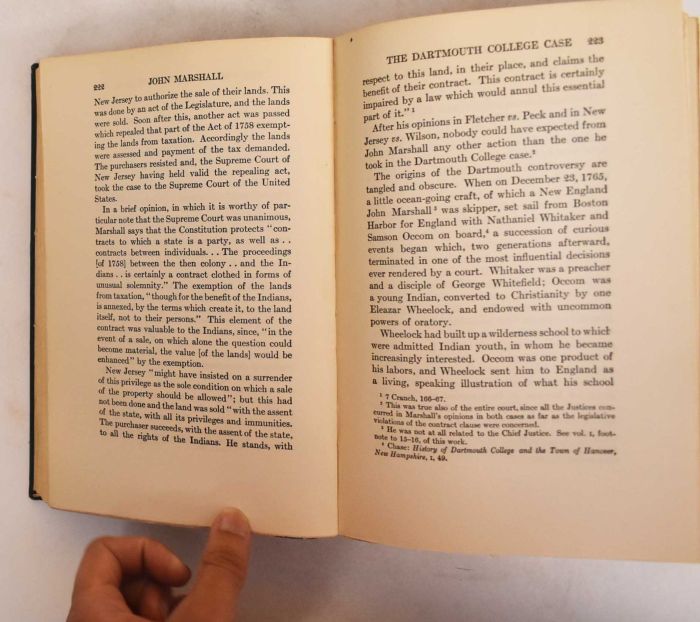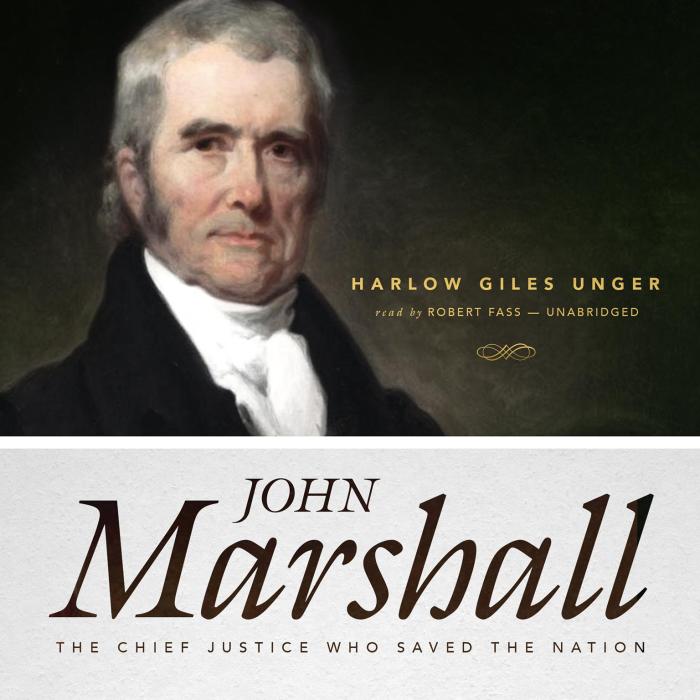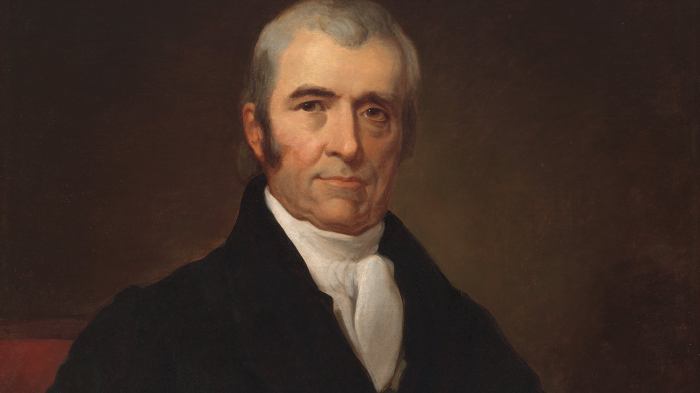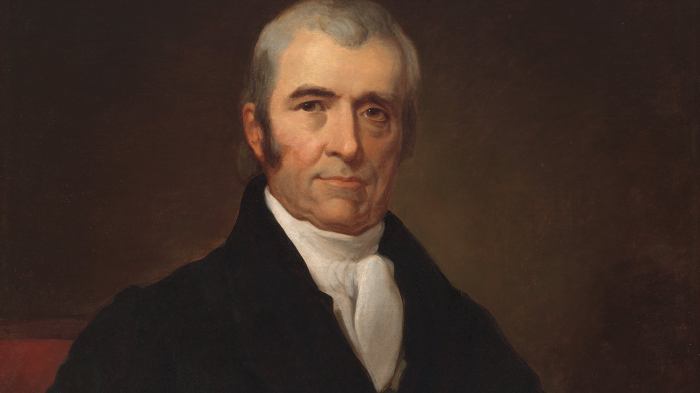Get ready to dive into the life and legacy of John Marshall, the fourth Chief Justice of the United States, who basically wrote the rulebook for American law! From his humble beginnings to his pivotal role in shaping the Supreme Court into the powerful institution we know today, this dude’s story is a total game-changer.
We’re talking about a guy who not only influenced the course of American history but also helped define what it means to be a nation under law.
In this epic tale, we’ll explore Marshall’s early life, his political rise, and his landmark decisions that left an indelible mark on our legal system. Think of him as the OG legal influencer, setting the standard for judicial review and laying the groundwork for a strong federal government.
This is a story about power, justice, and the enduring legacy of one man’s impact on the American legal landscape.
The Shaping of the Supreme Court

The Supreme Court, established by the Constitution, faced an uphill battle in its early years. It had to navigate a system where the fledgling nation was still defining its own identity, and the Court’s role in that process was far from clear.
The early years of the Court were marked by its struggle to establish its legitimacy and define its place within the American system of government.
The Court’s Early Years and its Struggles for Legitimacy
The Supreme Court’s early years were marked by a lack of clarity regarding its role and authority. The Court’s early justices were not particularly influential, and the Court itself was often overshadowed by the other branches of government. The Court was initially seen as a weak and ineffective institution, struggling to establish its authority and influence in the newly formed nation.
The Court’s first Chief Justice, John Jay, was a highly respected figure, but he resigned after only four years due to frustration with the Court’s lack of influence. His successor, Oliver Ellsworth, was a skilled jurist but also struggled to assert the Court’s authority.
The Court’s early years were marked by a lack of prestige and respect, with many questioning its ability to effectively enforce the law. The Court was also hampered by a lack of resources, including a limited budget and a small staff.
This lack of resources made it difficult for the Court to conduct its business effectively, further contributing to its perception as a weak and ineffective institution. The Court’s early years were a period of uncertainty and struggle, as it sought to establish its legitimacy and define its role in the new nation.
Key Cases that Shaped the Early Development of the Court
A few key cases helped shape the early development of the Court and its authority. These cases helped to define the Court’s role in the American system of government and establish its legitimacy.
- Chisholm v. Georgia (1793)This case involved a citizen of South Carolina suing the state of Georgia in federal court. The Supreme Court ruled in favor of the citizen, asserting the Court’s power to hear cases against states. This decision was highly controversial, as it was seen as undermining states’ rights.
The 11th Amendment, which was passed in response to this decision, limited the Court’s jurisdiction over suits against states. While the Court lost in the short term, this case demonstrated the Court’s willingness to assert its power and its role in interpreting the Constitution.
- Hylton v. United States (1796)This case challenged the constitutionality of a federal tax on carriages. The Court upheld the tax, establishing the principle of judicial review, which gave the Court the power to strike down laws that it deemed unconstitutional. While not as famous as -Marbury v.
Madison*, this case was significant because it was the first time the Court asserted its power to invalidate a law passed by Congress.
- Marbury v. Madison (1803)This landmark case is considered one of the most important cases in American history. The case involved a dispute over a judicial appointment, and the Court’s decision established the principle of judicial review, which gave the Court the power to strike down laws that it deemed unconstitutional.
So, you’re digging into the history of the Supreme Court with “The Life of John Marshall” – pretty intense, right? Maybe you need a break from all that legal jargon. If you’re feeling creative, you can check out Learn to Draw Kawaii Girls for Beginners Book On How To Easily Draw Original And Adorable Kawaii Girls – A Step-by-Step Drawing Guide for Kids …
Anime Manga Cartoon Super Cute girls … and draw some super cute girls. Then, you can get back to Marshall and the founding of the Supreme Court, all fresh and ready to go!
This case was a major turning point for the Court, as it solidified its power and established its role as the final arbiter of the Constitution. The decision in -Marbury v. Madison* has had a profound impact on American law and government, shaping the balance of power between the three branches of government and solidifying the Court’s position as a co-equal branch.
Marshall’s Approach to Judicial Review
John Marshall, appointed Chief Justice in 1801, was a strong advocate for the Court’s power of judicial review. Marshall’s approach to judicial review differed significantly from that of his predecessors. Marshall believed that the Court had a duty to interpret the Constitution and ensure that laws passed by Congress were consistent with the Constitution.
So, you’re diving into the world of John Marshall, the OG Chief Justice? He was basically the OG Supreme Court, shaping it into the powerhouse it is today. But you know, sometimes the most powerful people have been through some serious stuff, and that’s why I always recommend checking out Beyond Survival My “Little Girl” Journey to Healing- Overcoming Your Childhood Trauma.
It’s a real eye-opener on how past trauma can impact even the most influential figures. Back to Marshall, dude was a total rockstar, laying down the law and establishing the Supreme Court’s authority. Talk about a legacy!
Marshall’s approach was characterized by his strong belief in the importance of the rule of law and his commitment to ensuring that the Constitution was the supreme law of the land. His predecessors, on the other hand, were more cautious in their approach to judicial review, often deferring to the other branches of government.
Marshall’s leadership helped to transform the Supreme Court into a powerful institution. Marshall’s strong personality and his commitment to the Court’s power of judicial review helped to elevate the Court’s stature and establish it as a co-equal branch of government.
Marshall’s leadership also helped to establish the Court’s role as the final arbiter of the Constitution, ensuring that the Court’s decisions were respected by the other branches of government. Marshall’s legacy continues to shape the Supreme Court today, as the Court continues to play a central role in interpreting the Constitution and ensuring that the rule of law prevails.
Yo, wanna dive deep into the history of the Supreme Court? “The Life of John Marshall Volume I & II The Chief Justice & The Making of the Supreme Court” is the ultimate guide, man. It’s like a time machine, taking you back to the OG days of the court, when John Marshall was the boss.
You can Download And Listen Here and get your history fix, cuz this book is straight-up fire! It’s all about the dude who shaped the Supreme Court into the powerhouse it is today. Get ready to learn some serious legal history, fam.
Landmark Decisions and Their Impact

John Marshall’s tenure as Chief Justice saw the Supreme Court establish itself as a powerful force in American government. His decisions not only interpreted the Constitution but also shaped its meaning for generations to come.
Marshall’s Most Significant Decisions
Marshall’s decisions were often controversial, but they also laid the groundwork for a strong and unified nation. Here are some of his most significant rulings and their lasting impact:
| Case | Legal Reasoning | Impact |
|---|---|---|
| Marbury v. Madison (1803) | Established the principle of judicial review, allowing the Supreme Court to declare laws unconstitutional. | This landmark case solidified the Court’s role as the ultimate interpreter of the Constitution, establishing the principle of judicial review that remains fundamental to American jurisprudence. |
| McCulloch v. Maryland (1819) | Affirmed the implied powers of the federal government, upholding the constitutionality of the Bank of the United States. | This decision significantly expanded the scope of federal power, establishing the doctrine of implied powers and affirming the supremacy of federal law over state law. |
| Gibbons v. Ogden (1824) | Defined the scope of the Commerce Clause, giving Congress broad power to regulate interstate commerce. | This decision greatly expanded the federal government’s authority to regulate commerce, laying the foundation for a national economy and a unified marketplace. |
| Fletcher v. Peck (1810) | Established the principle of judicial review of state laws and the sanctity of contracts. | This case demonstrated the Court’s willingness to protect property rights and uphold the rule of law, even against state legislatures. |
| Dartmouth College v. Woodward (1819) | Upheld the sanctity of contracts and protected private corporations from state interference. | This decision reinforced the principle of limited government and the importance of protecting private property rights. It also played a significant role in the development of corporate law in the United States. |
McCulloch v. Maryland and Its Implications for Federalism
In 1819, the Supreme Court heard the case ofMcCulloch v. Maryland*. The state of Maryland had attempted to tax the Second Bank of the United States, a national bank chartered by Congress. The state argued that the bank was unconstitutional because the Constitution did not explicitly grant Congress the power to create a national bank.
The Court, under Chief Justice Marshall, ruled in favor of the bank.
“The power to tax involves the power to destroy,”
Marshall famously wrote. He argued that the Necessary and Proper Clause of the Constitution gave Congress the implied power to create a national bank, even though the Constitution did not explicitly mention it. This clause, Marshall explained, allowed Congress to enact laws that were “necessary and proper” for carrying out its enumerated powers.
He reasoned that a national bank was a “necessary and proper” means for Congress to carry out its powers to regulate commerce, collect taxes, and borrow money.The decision inMcCulloch v. Maryland* was a major victory for the federal government and a significant setback for states’ rights advocates.
It established the principle of implied powers, which has been used to justify a wide range of federal actions over the years. The decision also affirmed the supremacy of federal law over state law, a principle that has been central to the development of American federalism.
Yo, history buffs! If you’re digging into the Life of John Marshall, you’re probably all about that OG Supreme Court action. But sometimes, even the most hardcore legal eagle needs a break. Check out this Victorian Ladies Coloring Book for some chill vibes and a chance to unleash your inner artist.
Then, you can jump back into the court’s history with a fresh perspective on Marshall’s legacy.
Impact of Marshall’s Decisions on the Balance of Power
Marshall’s decisions consistently favored a strong national government and a more unified nation. He saw the Constitution as a document that established a framework for a strong central government, capable of enacting laws and policies that benefited the entire nation.
He believed that a strong national government was essential to the stability and prosperity of the United States. Marshall’s decisions often came at the expense of state sovereignty. He interpreted the Constitution in a way that expanded the powers of the federal government and limited the powers of the states.
This approach to constitutional interpretation helped to establish the United States as a strong and unified nation, but it also led to ongoing debates about the proper balance of power between the federal government and the states.
Marshall’s Jurisprudence and the Development of American Constitutional Law
John Marshall’s jurisprudence had a profound impact on the development of American constitutional law. His decisions established important principles that continue to guide the Supreme Court today. His emphasis on judicial review, implied powers, and the supremacy of federal law laid the groundwork for a strong and unified nation.
His decisions also established the Supreme Court as a powerful force in American government, capable of shaping the meaning of the Constitution and influencing the course of American history.
Closing Summary

John Marshall’s story is a reminder that one person can truly make a difference. His legacy lives on in every courtroom and every legal debate, a testament to his brilliance and his unwavering commitment to the rule of law. So next time you hear about the Supreme Court, remember the name John Marshall – the Chief Justice who shaped America.
Key Questions Answered
Why is John Marshall considered so important?
John Marshall is considered a pivotal figure in American history because he established the Supreme Court’s power of judicial review, which allows the Court to declare laws unconstitutional. This fundamentally changed the balance of power in the government and set the stage for the Court’s role as the ultimate interpreter of the Constitution.
What are some of John Marshall’s most famous decisions?
Some of John Marshall’s most famous decisions include Marbury v. Madison (1803), which established judicial review, and McCulloch v. Maryland (1819), which upheld the supremacy of the federal government over the states.
What was John Marshall’s impact on American law?
John Marshall’s jurisprudence significantly shaped the development of American constitutional law. He emphasized a strong federal government and a broad interpretation of the Constitution, which had a lasting impact on the balance of power between the federal government and the states.

